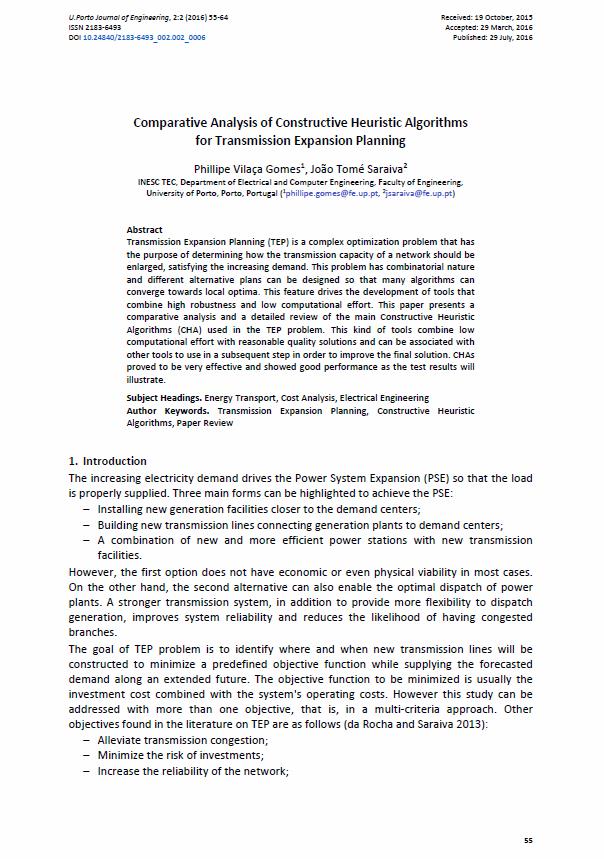Comparative Analysis of Constructive Heuristic Algorithms for Transmission Expansion Planning
Main Article Content
Abstract
Transmission Expansion Planning (TEP) is a complex optimization problem that has the purpose of determining how the transmission capacity of a network should be enlarged, satisfying the increasing demand. This problem has combinatorial nature and different alternative plans can be designed so that many algorithms can converge towards local optima. This feature drives the development of tools that combine high robustness and low computational effort. This paper presents a comparative analysis and a detailed review of the main Constructive Heuristic Algorithms (CHA) used in the TEP problem. This kind of tools combine low computational effort with reasonable quality solutions and can be associated with other tools to use in a subsequent step in order to improve the final solution. CHAs proved to be very effective and showed good performance as the test results will illustrate.
Downloads
Article Details
Authors who publish with this journal agree to the following terms:
- Authors retain copyright and grant the journal right of first publication with the work simultaneously licensed under a Creative Commons Attribution License that allows others to share the work with an acknowledgement of the work's authorship and initial publication in this journal.
- Authors grant the journal the rights to provide the article in all forms and media so the article can be used on the latest technology even after publication and ensure its long-term preservation.
- Authors are able to enter into separate, additional contractual arrangements for the non-exclusive distribution of the journal's published version of the work (e.g., post it to an institutional repository or publish it in a book), with an acknowledgement of its initial publication in this journal.
- Authors are permitted and encouraged to post their work online (e.g., in institutional repositories or on their website) prior to and during the submission process, as it can lead to productive exchanges, as well as earlier and greater citation of published work (See The Effect of Open Access).

